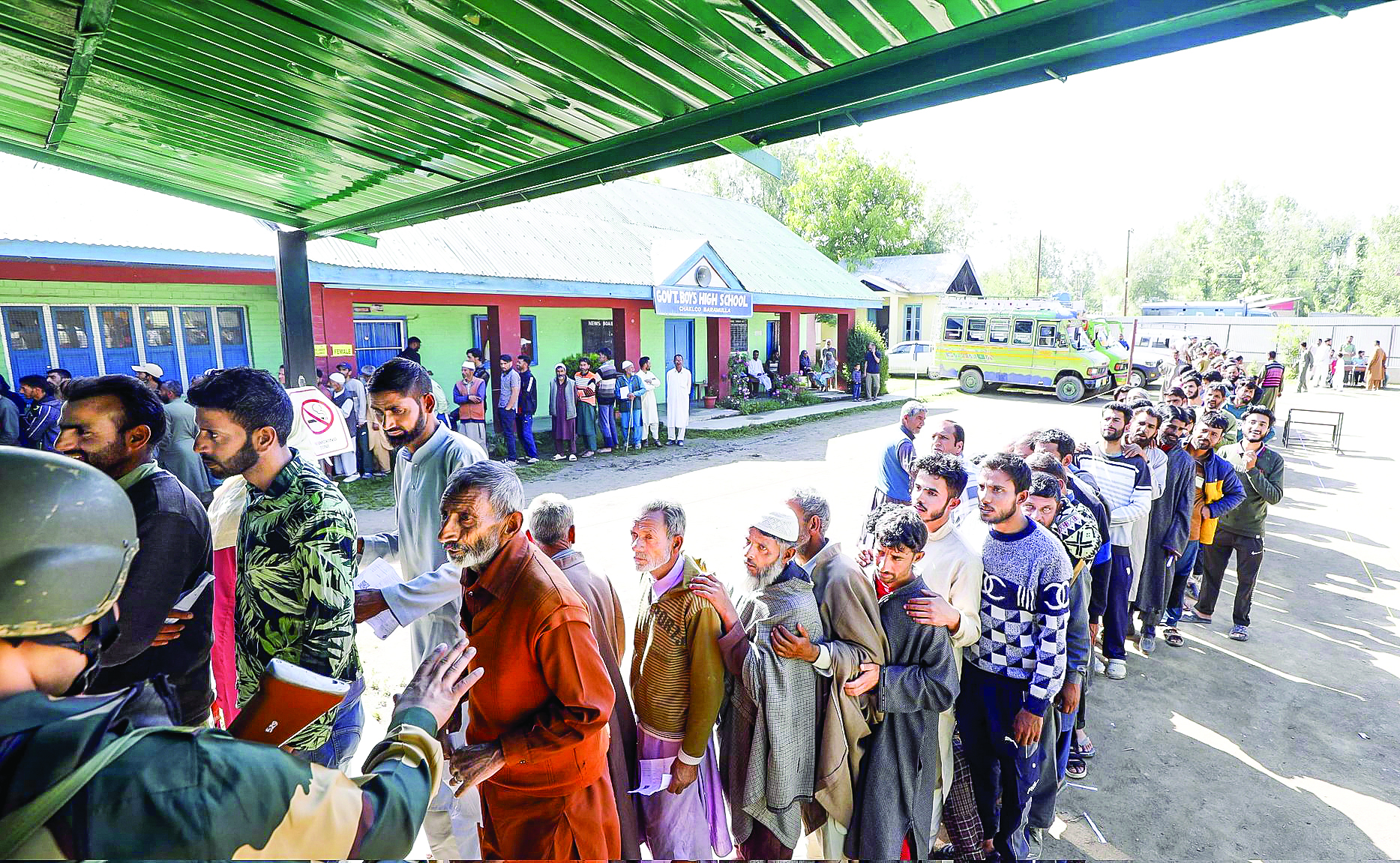In spite of overwhelming polling in the valley.
A special gain of the 2024 Lok Sabha elections has been the return of the spirit of democracy in Kashmir valley, which had fallen victim to the vicious designs of anti-India forces and the indifferent and inept handling of Kashmiri matters by the rest of India. In the 2024 Lok Sabha elections, ordinary Kashmiris have left everyone awestruck with their extraordinary enthusiasm in voting. Kashmiri voters from Pulwama and Anantnag, hitherto considered to be the playground of AK-47-toting terrorists, showed more enthusiasm than the voters of cities like Delhi and Mumbai in casting their ballot. While the Pulwama voters broke their own 28-year-old record—46.65% in 1996—by casting 59.1% votes, Srinagar voters went from 14.4% in 2019 to 38.5% in 2024.
Prior to the Lok Sabha elections of 2019 and the subsequent nullification of Article-370 and Article-35A, at least two of the three living generations of Kashmir Valley did not know what a peaceful life meant. Not even two days went without a public strike, curfew, violent demonstrations, stone pelting, terror killings or police firing. Obeying the Hurriyat diktat of boycotting elections was considered a “religious” duty. One cannot forget the front page photograph in most national dailies showing a colour TV lying at the entrance of a voting booth in Srinagar under notice that announced loudly “This colour TV is for the person who dares to be the first voter in this polling booth.”
Contrast this with 2024. Not a single call was given for any strike against the elections, not a single poster was plastered on Srinagar’s walls calling for a boycott. To the utter disappointment of western and west Asian propaganda vehicles such as the BBC, New York Times, Washington Post and Al-Jazeera there was not a single “zero vote” booth, so could not be shown to the international community as a sign of New Delhi’s failure in Kashmir.
As a matter of fact, the fresh roots of Kashmir people’s interest in the democratic process had started gaining ground earlier when elections to the block and zila councils were held soon after the abrogation of Article-370. Large scale people’s participation both as candidates and voters had indicated that the days of the exclusive dominance of Kashmiri politics by a small group of families, called the “Gupkar Road gang” was on its last legs.
This time the Lok Sabha elections have further confirmed this trend as obvious from the number of political parties and candidates who joined the fray. In Srinagar, 24 candidates were in the fray, including 8 belonging to the recognised political parties. Among Baramulla’s 22 candidates, 8 belonged to such parties, while the respective numbers in Anantnag-Rajouri are 20 and 10. Interestingly, the BJP did not nominate any candidate for any of the three seats in the Valley. Many anti-Narendra Modi and anti-BJP international propaganda vehicles tried to paint this as a BJP ploy to hide its “unpopularity” in the Valley. But in reality the BJP seems to have ensured that no Kashmiri party or leader could turn the election into a Kashmir-vs-New Delhi fight and thus revive the separatist agenda.
But all this does not mean that peace and democracy have grown permanent roots in the Valley. Indian as well international forces who don’t want to see Kashmiri separatism to die, and those who are rabidly allergic to the current government’s plans of integrating Kashmir into the mainstream, have not given up.
A popular English language journalist was seen presenting an interesting interpretation on YouTube of what he saw during
This is a dangerous suggestion to those who even marginally understand the history of separatism and terrorism in Kashmir Valley. Kashmir’s history, right from the day when Pandit Nehru handed over the reins of the state to his blue-eyed boy Sheikh Abdullah in 1948, without any public mandate, J&K has seen its legislative, administrative and police apparatus handing over the entire system to all kinds of separatist and terrorist groups. This eventually led to near complete religious cleansing of Kashmir valley. Past experience says that even if elections to the Legislative Assembly are held, the issue of full statehood should be kept in abeyance until law and order takes deep roots in J&K; the uprooted Kashmiri Pandits return and feel secure in their regained homeland; and ordinary masses of Kashmir get used to the fruits of democracy and start living in an atmosphere of perpetual peace. Only the secure, empowered, multi-cultural and self-respecting Kashmiris can be the guarantors of a happy Kashmir as an integral part of India.
Vijay Kranti is a senior journalist of Kashmiri origin, and Chairman, Centre for Himalayan Asia Studies and Engagement (CHASE).

